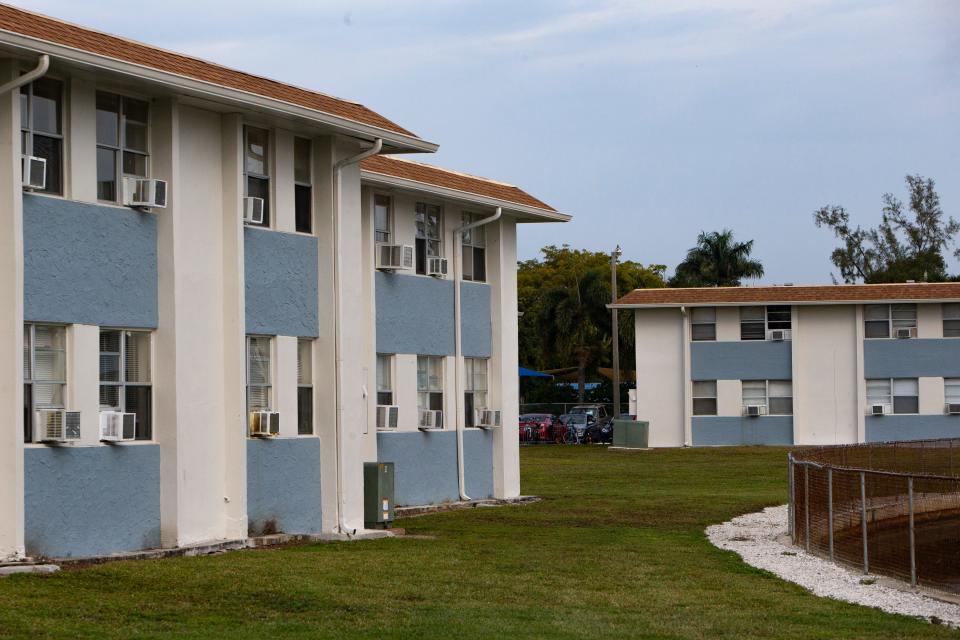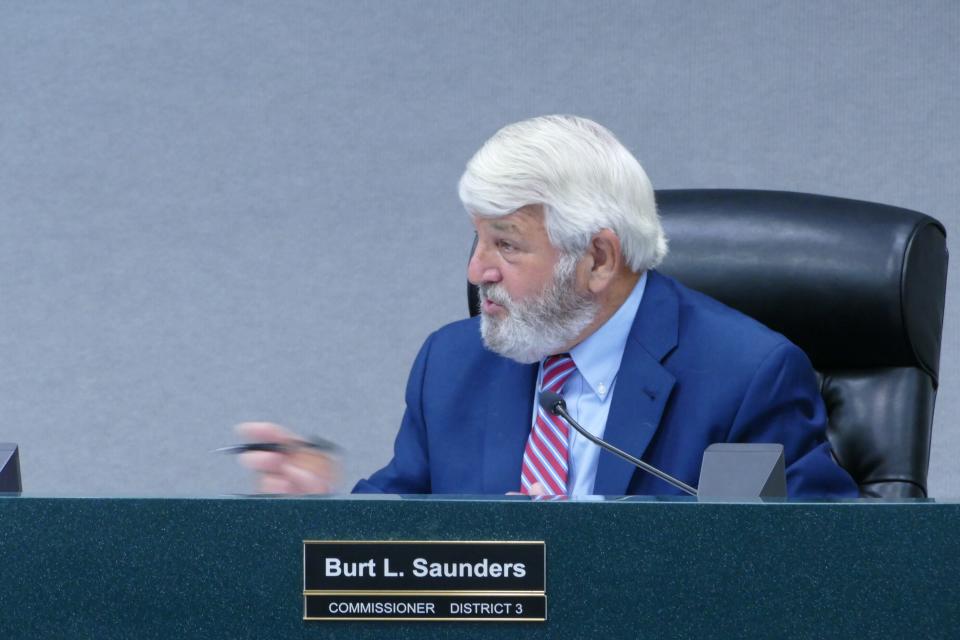Collier commissioners to fight pricey housing issues by encouraging more options
Collier County commissioners have taken crucial steps toward dealing with a worsening affordable housing crisis.
At a board meeting Tuesday, they went beyond the actions recommended by county staff, recognizing and stressing the urgency of the situation.
"We're here to take action," said Commissioner Rick LoCastro.
Other commissioners agreed.
In a series of unanimous decisions, the board voted to encourage the development of lower-cost housing in varying ways.
They agreed the county needs to swiftly identify land and free up millions in reserves, generated by a one-cent local option sales surtax for capital projects, to help pay for it. That's one of two immediate actions staff recommended the board take to provide $20 million in one-time funding.
In the Know: SWFL affordable housing getting gobbled up by investors
And: In historic first, Collier houses now Top 10 most expensive in U.S. Lee keeps rising, too

The board also backed staff's suggestion to use general fund dollars as a recurring funding source for projects that address the dire need, as other counties have done in Florida.
Commissioners directed staff to come back with a recommended percentage of the county's property tax rate that could be tapped to address the need.
The board discussed setting aside one-tenth of the county's property tax, or millage, rate, for the cause, at least to start, which could raise more than $10 million in the first year to help offset interested developers' land and construction costs.
The county's millage rate has been $3.5645 for more than a decade, with no push to increase it. One mil is equal to $1 of tax for every $1,000 of property value.
More like this:
Homeless can't win against Collier's County rising rents, lack of affordable housing
Affordable housing solutions could include incentive fund, tenants union
Groundbreaking for affordable housing project in Immokalee brings hope to community members
Change of heart
Commissioner Burt Saunders spearheaded most of the board-approved motions.
"The solution is getting more housing," he said. "That's the bottom line to me."
Before making multiple motions, the commissioner explained that he no longer doubts the county's need to step up to the plate in a big way to deal with a housing problem that has only been exacerbated by the coronavirus pandemic, which has spurred in-migration like no one could have ever imagined in Southwest Florida.
"I'm seeing California license plates," he said. "That is something new for Naples."
Going beyond staff recommendations, commissioners voted to move forward with an outside study that's necessary for the board to consider imposing linkage fees on industrial and commercial construction, which could provide another source of recurring funding.
Saunders, who made the motion in favor of the study, said a few years ago he opposed such fees, but he'd changed his mind because builders and developers had become so "greedy," charging such high rents.
Discussions about the fees in years past stirred opposition from developers, who argued they'd unfairly increase their costs, which are already high.

Talks of new fees
While county staff made no mention of the linkage fees in its recommendations, the county's Affordable Housing Advisory Committee is pushing them as one of many necessary solutions to the problem.
The committee wants the county to consider charging at least a "nominal" linkage fee of $1 a square foot.
Saunders said he'd personally support a fee at "a fairly high level," at $10,000 a unit or more.
Several commissioners expressed hesitancy about the fees, but still supported and voted for the study.
"I don' think anybody should ever be against a study," LoCastro said.
Commissioner Bill McDaniel agreed, saying he'd be happy to take a look at the results of a study. However, he warned that he's not sure how he'll side on the new fees.
"I'm not all that hot on it," he said. "I want to see what the information says first."
Commissioner Saunders requested that staff look into impact fee waivers for affordable housing projects as well. The one-time charges on residential construction help pay for everything from roads and utilities to parks and libraries, but they push up building costs and they're among the highest in the state.
He also asked staff to report back to the board on the potential to start charging "housing" impact fees on commercial and industrial construction, although he understands the idea could be quite unpopular.
Special meeting
The board agreed to have a special affordable housing meeting where staff could provide the additional information commissioners seek — and where commissioners could hear more community input and feedback on additional solutions, and take other quick action.
Commissioner Penny Taylor applauded Saunders for his change of heart — and for listening and responding to concerns about the housing shortage raised by residents, employees and business executives and owners, as well as other community leaders and advocates.

Nearly 30 people signed up to speak at the hearing, with some ceding their time to others.
Speakers had a common theme: Action is needed now and it's long overdue.
Commissioners heard that businesses are struggling to hire and retain employees across the board because housing supplies are so short and housing costs are so high.
They also heard about real struggles the county's residents and workers have faced because of the lack of housing they can afford, from long commutes and cramped co-living to long shifts and even homelessness.
Candy Nordland, a North Naples resident, described the problem as a "travesty that has grown like a mushroom cloud" since she moved to the area in 1997.
"I really don't want to live in a place where a senior on a fixed income, with a disablity, is forced to leave, because they get a $1,000 a month increase in their rent," she said.
The same goes for others facing the same kind of hardship, such as a chaplain or teacher, Nordland said.
Seeking immediate solutions
Taylor asked county staff if there's anything that could be done right away to help those who've seen their rents doubled or even tripled over the past year by their landlords, some of which have refused to accept temporary emergency government assistance from their tenants because they know others with higher incomes — who can afford to pay a lot more — are in the waiting.
"It's just the worst kind of behavior," she said. "I'm not sure we can do anything about it."
County Attorney Jeffrey Klatzkow said he could see if staff could "get some kind of fair housing ordinance put together," and get back to the board on it.
"That's a big if," Taylor said. "But this is immediate."
She asked staff about the possibility of price or rent controls, but Klatzkow told her those aren't viable solutions because they're difficult to impose and can't last more than a year. On top of that, such actions would most likely get challenged in court, with the county ending up on the losing end, he said.
"Nobody has done this to my knowledge," Klatzkow said, referring to other cities and counties around the state.
Commissioner Andy Solis asked whether four other initiatives that have been in the works to address the crisis could be expedited, skipping any usual reviews by the county's planning commission. Those initiatives are aimed at increasing density allowances for developers willing to build affordable housing.
Staff said they'd work on bringing those action items forward as soon as possible.
Speeding up the effort
In the future, Solis suggested that affordable housing projects should maybe go directly to the county commission for a vote, without first getting reviewed by the planning advisory board, as is customary in the approval process.
"It would save a lot of time," he said.
In answer, however, Klatzkow said the planning commission can't be bypassed, unless the county makes changes to its land development code.
Commissioner McDaniel said more partnerships are needed. In that vein, he made a motion to direct county staff to work with the local school district, sheriff's office, fire districts and cities to find solutions to the problem, including identifying any surplus lands that could be used for affordable housing.
His fellow commissioners supported that motion unanimously.
McDaniel questioned whether there's a better way to manage the county's current impact fee program and how the money is spent. Staff told him policy issues will soon be before the board anyway, due to changes in state law.
As for the special meeting to discuss more solutions to the crisis, a date hasn't been set yet. The exact topics are still to be decided too, but LoCastro said all of the major stakeholders should be invited or encouraged to attend.
"We want it to be as inclusive as possible, without turning it into a circus," he said.
The decision for a special meeting should reflect the board's urgency in trying to address the problem — and demonstrate that it wants to "light some hairs on fire," LoCastro said, when it comes to finding solutions that will work and make a difference.
"Folks need to realize that we aren't just going to put all the affordable housing in Immokalee," he said. "We can't hide it somewhere and camouflage it. It needs to be where the workers are."

Following the hearing, Joe Trachtenberg, chairman of the Affordable Housing Advisory Committee, described the board's actions as a "terrific beginning."
"While one couldn’t help being sad, listening to all the folks who are struggling, I was very pleased with the actions taken by the commissioners, and the fact they were unanimous," he said.
He noted there's still a long, hard road ahead on this front.
"We have lots to do, and it won’t be easy," Trachtenberg said.

While there's a lot more work to be done, the actions commissioners took Tuesday have the "potential to move affordable workforce housing forward more than it’s ever been moved before," said Michael Dalby, president and CEO of the Greater Naples Chamber of Commerce.
"Clearly, all agreed workforce housing is in crisis, and clearly, all are committed to taking the next steps to not only make funding available, but to also make tangible changes to processes to incentivize the development of affordable workforce housing units," he said. "It won’t happen overnight, but, hopefully, we won’t be discussing these exact same issues 15 or 20 years from now."
This article originally appeared on Naples Daily News: Affordable housing in Collier County: Commissioners take action

